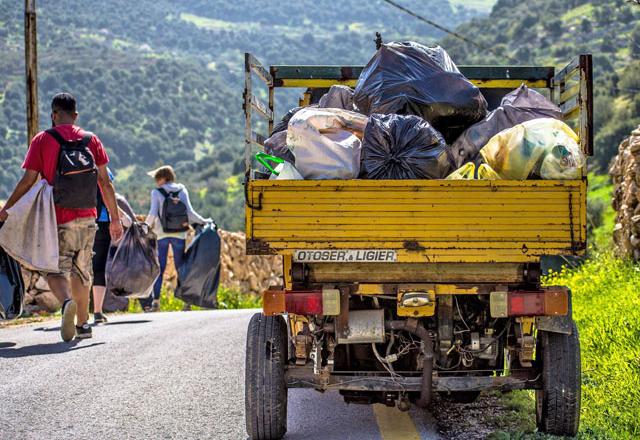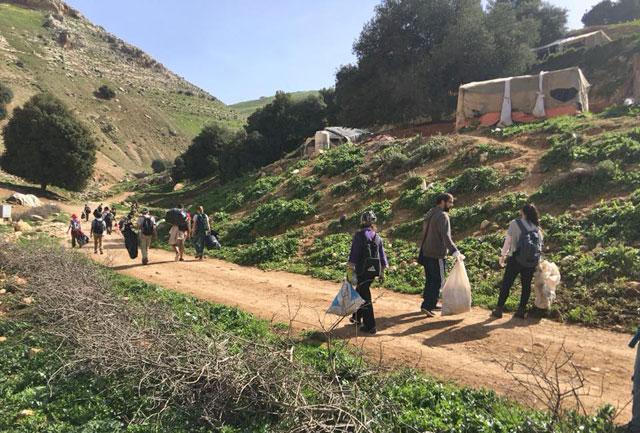You are here
Environmental hikers say their efforts ‘not enough’ as litter ‘continues to increase’
By Rory Quick - Mar 17,2019 - Last updated at Mar 17,2019

In this undated photo, a group of hikers load up a truck with litter they have collected during their hike (Photo courtesy of ECO Hikers)
AMMAN — From the Jordan Valley to Wadi Rum to the 650km long Jordan Trail, which was named among 2018’s best tourist destinations by National Geographic, the British Sunday Times, the Guardian and Lonely Planet, the Kingdom offers hikers opportunities to explore “unique” locations.
However, levels of rubbish have continued to increase across these areas, according to an environmental activist, who added that combined with a lack of municipal facilities such as bins and recycling locations, the problem is continuing grow.
ECO Hikers, formed in 2018 with the motto “lets clean as we hike”, takes people on weekly hikes to both explore and clean up some Jordan’s iconic spots.
The group has 4,700 followers on their Facebook page, which is used to promote their weekly hikes as well as other environmental news and information.
Nader Manaseer, the founder of the initiative, said he started the group after being “struck by the levels of garbage people left behind after their hikes and picnics”. Manaseer said the group clears the areas they hike of all forms of rubbish, and recycles where possible.
“There was a gap in the market, with nothing of this kind being offered,” Nader stated. “It is the only thing of its kind being offered in the Middle East.”
The group now takes 50-100 people (depending on safety limits) on each of their hikes. One of the group’s priorities is to spread environmental awareness within rural communities, where little formal education about the topic is provided, Manaseer said.
“When people used to see us, they were confused why we were doing it [cleaning up trash], but now, everyone wants to help,” Manaseer said.
However, despite the group’s work, the founder said: “It is not enough,” as Jordan generates 6 million tonnes of solid waste every year, 20 per cent of which are plastics. “What we need most is a mindset change.”
“Long-term targets and further education are necessary to preserve these unique locations for everyone to enjoy. If we want to make a difference to the future, we must start with the children,” said Rory Mcguigan, a second spokesperson from the group.
Related Articles
AMMAN — Nature lovers on Friday went on a cleaning hike, as part of the ECO Hikers “Clean as We Hike” weekly events aimed at safeguarding Jo
AMMAN — The topics of marine biodiversity in the Gulf of Aqaba and plastic waste management across the Kingdom took centre stage at the Nigh
TABARJA, Lebanon — The Lebanese divers plunge below the surface, scuba tanks on their backs and nets in hand.

















